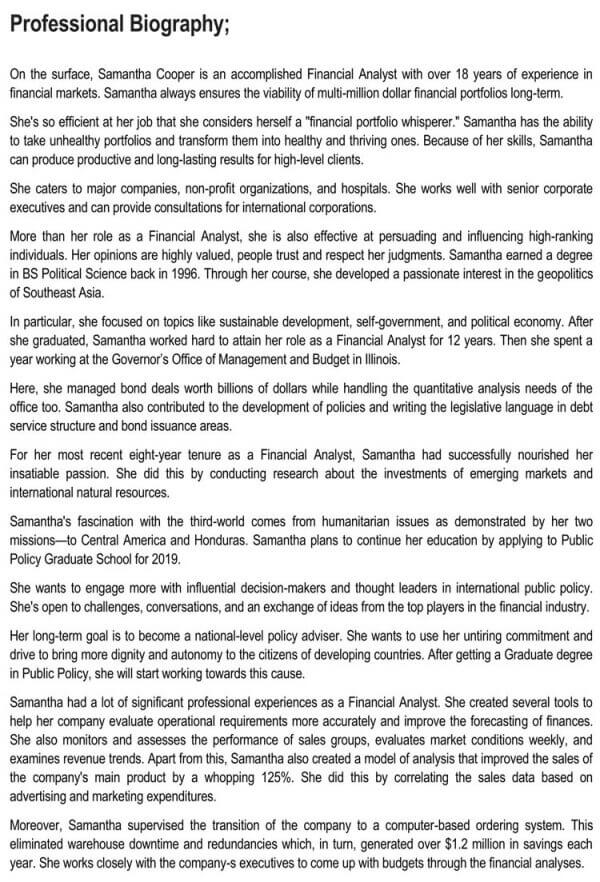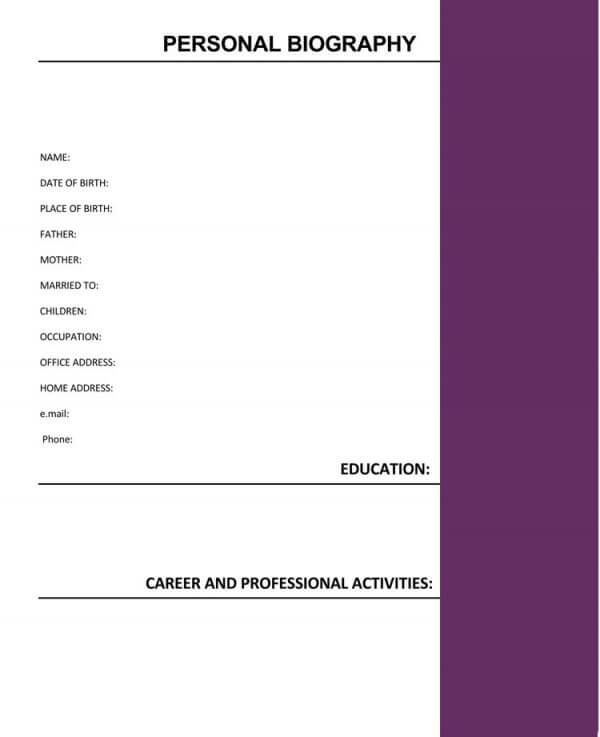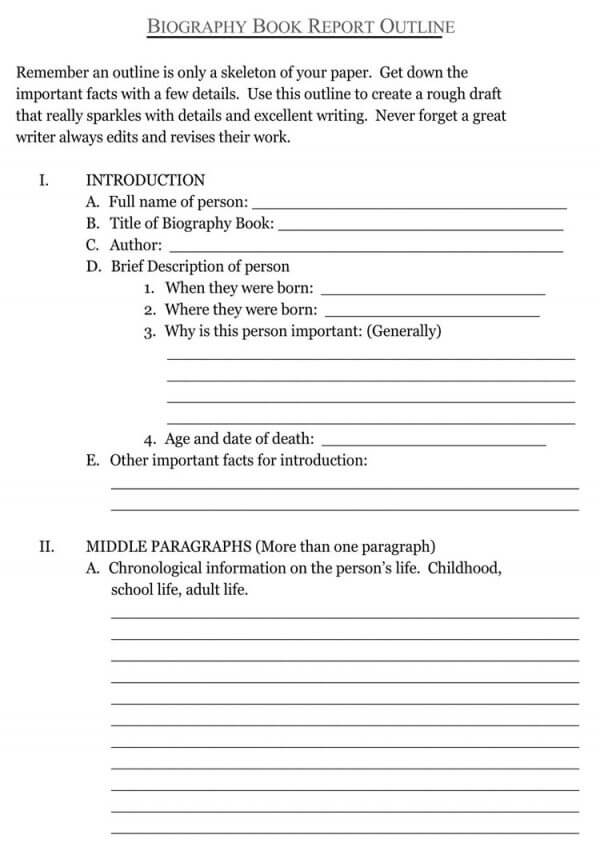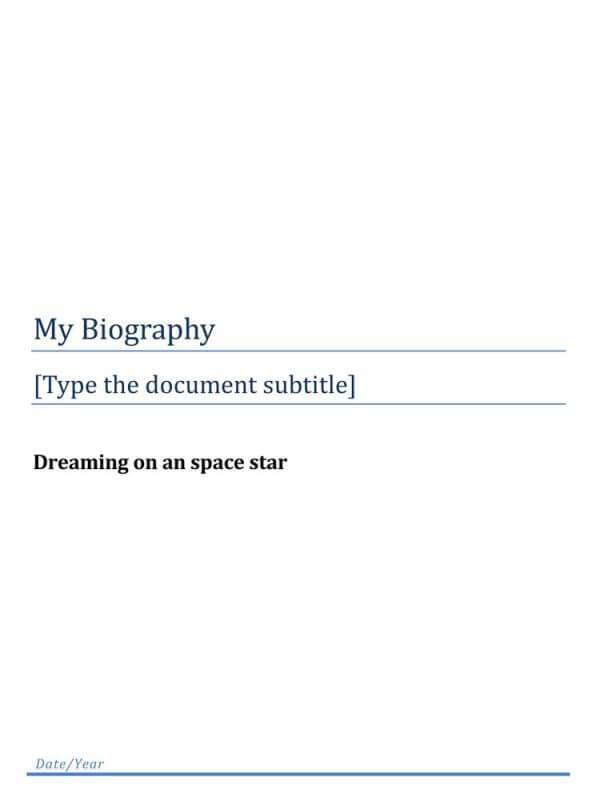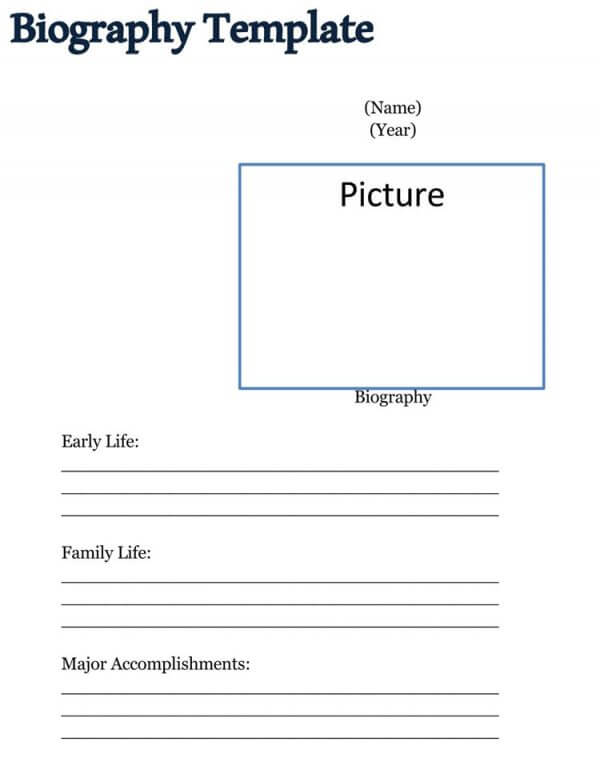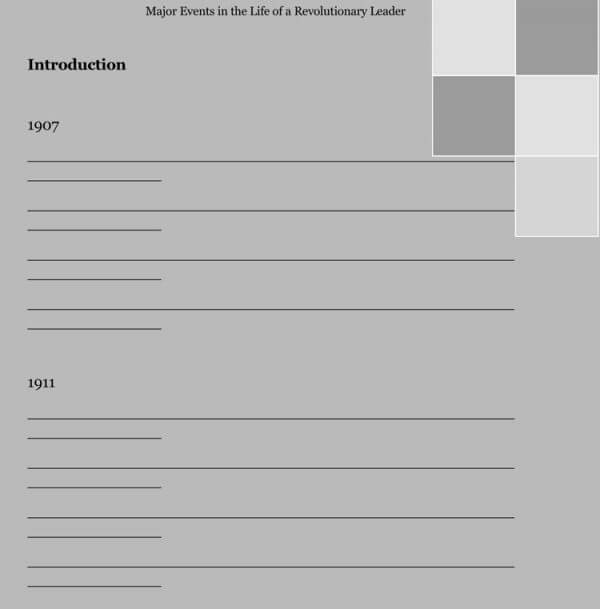A biography is a written account of a person’s life that details their life in chronological order. Another person usually writes this detailed account, and it contains reports of their childhood, career, major life events, relationships, and social impact. It also details their relationships with their family, children, and life accomplishments.
The best way to find out more about a popular figure is through reading their biographies, so you need to make sure you get the correct information. Before writing a biography, you need to do a lot of research and interviews to represent a person’s life accurately.
Types of Biography
Biography
A biography is the story of someone’s life as written by another writer. Most biographies of popular figures are written years, or even decades, after their deaths. Authors write biographies of popular figures due to either a lack of information on the subject or personal interest.
A biography aims to share a person’s story or highlight a part of their life.
There are different types of biographies, depending on the story. Some biographies are written true to the story, while some are written as fictional works. Biographies can give you true understanding of a person on an internal as well as external level along with a lot of life lessons.
Autobiography
An autobiography is different from a biography because it is written by the subject of the story, themselves. The author writes in the first-person narrative, and it flows step-by-step like a story of their life. Autobiographies contain personal accounts of the subject’s life, along with their perspectives and opinions on events in their life.
How To Write a Biography
Pick a Subject
Picking a subject is the first step in writing a biography. You can pick an already famous person or a relatively unknown person with a great life story. If you already have a few in mind, you can start by asking yourself some questions such as;
- What has the subject accomplished that makes them a good subject?
- Have they had an impact on society?
- Is the subject a celebrity or a well-known personality?
- Will the biography appeal to a wide audience?
Get Permission
When you pick a subject, the next thing to do is to get permission from them or their family or rights owners. Although, with some historical figures, there may not be any need for permission. Getting permission from your subject makes it easier for you to get stories to put into your book. You can get the chance to obtain additional personal stories and anecdotes that will make your book more interesting by doing so as well.
Do The Research
Research is the most important part of a biography’s process as the entire content of the book is dependent on it. Irrespective of what you know about the subject, you need to carry out as much research as possible to get the story’s facts precisely.
Biography research comes from various sources, depending on the book’s subject. Firsthand reports from family, friends, or personal accounts from the subjects are primary sources. They are usually the most accurate and reliable, and they are crucial for a biography. Secondary sources come from other sources like magazines or documentaries.
Pick a Format
Biographies come in various formats, with each of them having their pros and cons. A typical biography will start at the beginning, usually with the birth and childhood of the subject. Yet, if the biography’s theme involves a different event in their life, the author may want to explore the flashback option or one with concurrent events from different times.
Usually, biographies have a theme or a general life lesson at the center. The author’s role is to tell the subject’s story leading up to the major event.
Which-ever format you choose should place the theme at the center, with the other events detailing the journey.
Create a Timeline Of The Story
Since a biography takes place in chronological order, there needs to be a timeline of the events in the right order. The timeline should contain the key events in the subject’s life, in the order the author plans on revealing them. A great way to declutter the story and keep it interesting is to use flashbacks. This way, the author can introduce past events and explain later events excluding the element of monotony.
Add In Your Thoughts
The good thing about biographies is that you don’t have to stick to the hard facts only. As the author, you can share your opinions and emotions in writing. The author has the freedom to do this by commenting on a significant action by the subject in a manner that describes why they feel the subject may have done what they did.
The author can also include commentary on events depicted in the biography – how it was influenced society or its impact on the lives around them. Recounting these events through a different perspective can make the biography more relatable and interesting to read.
Free Templates
Nоw that we hаvе соvеrеd mоѕt of the tірѕ and ѕtерѕ уоu nееd to rеmеmbеr in уоur jоurnеу оf writing a biography, lеt uѕ gо one ѕtер аhеаd in helping make thе рrосеѕѕ convenient fоr уоu bу рrоvіdіng you with frее аnd fullу сuѕtomizable biography templates below!
FAQ’s
Why is a biography template important?
A biography template has an outline that makes the writing easier for the author. Biography templates usually contain a sample timeline, format, and questions that provide more information about the subject. With a great biography template, you can cut your writing time in half and spend less time coming up with an outline.
How are biographies better in comparison to autobiographies
Since a different person writes biographies, they tend to be more objective and somewhat accurate than autobiographies. An autobiography tells things from the author’s perspective, so their views and perspective cloud it. Thus, a biography will likely tell a more factual story.
These are the important steps you need to take to help you write a great biography. Now, to make things easier for you, we have a free customizable autobiography and biography template that you can use to start your first book. Get the template and start writing today
What are some of the most important elements to keep in consideration while writing a biography?
Any author looking to write a biography must consider the factors below. They aren’t the only important factors, but a biography isn’t complete without them.
• Date and place of their birth
• Academic background
• Professional expertise
• Death, if deceased
• Facts and anecdotes about the person
• Main accomplishments
• Detailed accounts of their child and adult life
Biographies tell the untold stories of some incredibly relevant people in the world. But biographies are not always strictly accurate. So, every biographer needs to follow the necessary steps to provide a biography with all the requirements.
